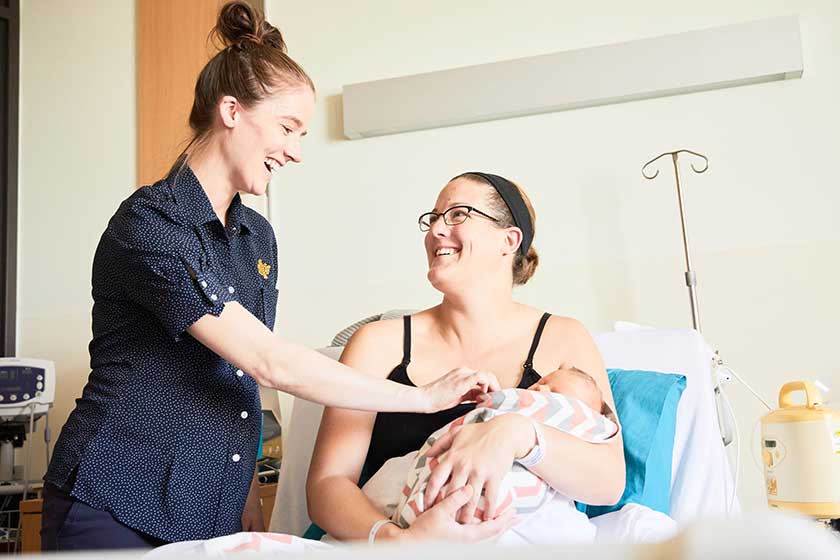Research highlights importance of mental health screening in private maternity care
12 Nov 2019

12 November 2019
The study aimed to describe the factors affecting the mental wellbeing of women who took part in mental health risk assessment screening for depression as part of their routine antenatal care.
Women who took part in the study completed the Edinburgh Postnatal Depression Scale and the Antenatal Risk Questionnaire, developed by St John of God Health Care Chair Perinatal and Women’s Mental Health Research Unit Professor Marie-Paule Austin, at their first antenatal appointment at the hospital.
The study also aimed to look at the women’s experience of doing this screening as a part of their pregnancy care.
The research was led by St John of God Raphael Services Clinical Lead Associate Professor Harish Kalra, University of New South Wales ARH Research Fellow Dr Nicole Reilly, and Professor Austin, and was completed in collaboration and support from the hospital management, local private obstetricians and midwives.
The research found that more than 87 per cent of women who attended the hospital for antenatal care completed the screening.
“Early intervention and detection of mental health concerns in women during pregnancy is crucial to their overall wellbeing,” Prof Kalra said.
“This research shows the value and importance of education and screening to ensure parents get the mental health support they need during the pregnancy journey.”
Dr Reilly said importantly women’s experience of completing the screening was overwhelmingly positive, with strong support for how their midwife provided care.
“The research showed that it was important that midwives took the time to explain the screening questions, why they were important and what would happen next,” she said.
Additionally, this research indicated that women who were attending a private hospital, and were in a higher socio economic situation, still reported risk factors.
Of those women who were screened, 25 per cent identified themselves as having one risk factor, 11 per cent two risk factors and 10 per cent three risk factors.
“This demonstrates the importance of screening women’s mental health as a part of routine antenatal care in the private setting so that those with risk factors can be identified and referred for appropriate mental health care,” Dr Reilly said.
You may be interested in
